E C H O E S





Ziliak
WILL I HAVE TO WEAR YOU FOREVER? Mina Dragani
INVASION OF MY OWN PRIVACY
GOD IS LIKE DANCING
Anoushka Prashanth
TO BE BRAVE - PART III
Delia Tager
HILLS ARE WATCHING
Anoushka Prashanth
Yang Megan Tighe
FATHER CAME TO THIS MOUNTAIN IN HIS
AND GOT LOST IN HIS
Cromwell
Dragani
My therapist talks about anxiety levels
Double knee replacements
And God.
She asks me
“Are you afraid of dying?”
“Deathly” I reply.
For dinner I eat
Emotions candied in Purple tupperware containers. I save the leftovers Within an emptied out cavity
Previously known as My chest.
In my room
A candle is burning
And I lie within its waxy pool
Slowly solidifying under a blanket
Continuous music Residual worry and the smell Of tobacco vanille.
The doctor says my “heart is in perfect shape.” No sign of an internal defect
Or expiration date. Unplugged from Machinery
Sadness falls like honey Into my teacup-shaped heart.
I had wished for an irregular Overexcited pulse
Solvable by a small pill And some warm water.

It is five in the morning, and an angel sits at Sheela’s kitchen table.
She knows she should be petrified. Instead, Sheela focuses on her hands, which paint soapy patterns on the pathram lying in the sink. The pot is still crusted with rings of dried milk and tea grounds from yesterday’s afternoon chai. She had made the tea later than normal, so that she could blame the caffeine for keeping her awake. Then she had driven to the outskirts of town to watch the sugarcane stalks shiver in the dusky evening light, staying long after they grew still and blue under the stars. She had taken the long way home, past the church billboard that proclaimed HELL IS REAL in faded unironic letters, through downtown roads where teenagers in stuttering pick-up trucks chased the white moony lines of the pavement.
There was only one stoplight on the long way home, but its eye stayed stubbornly red. She waited. The glass of her car window was still warm from the summer heat. She leaned against it, looking out at the quiet storefronts. Not much was open at this time of night, except for the town bar just a few hundred feet up the road. Sure enough, white light poured from its front window.

Sheela squinted. Something was wrong. She had been inside that bar a thousand times––on a normal night, the red neon signs that decorated the pub walls and her own intoxication gave it the aura of a photographic darkroom. But tonight, the light from the bar window was too cold, too bright. The signal turned green. Sheela idled forward, and eased the car to the curb across the street. From here, she could see more clearly––beyond the paned glass, the barroom glowed with the ruins of a miracle. Sheela barely heard the jingle of the door as she walked in. There was no bartender behind the counter, only green and blue whiskey bottles that stood like toy soldiers on the shelves, unperturbed by the impossibility of the scene before them. For in the center of the barroom, a woman burned out the eyes of seven grown men. A voice in Sheela’s head whispered that she had just witnessed something holy, or perhaps unholy––a voice that morphed into her mother’s, singing an old prayer about miracles from God. From angels.
Sheela scrubs the pathram harder. The memory of those people’s screams etch themselves onto the inside of her eardrums. The pockmarked soap suds on her hands are like the yawning holes in their skulls where eyes should’ve been. The part of Sheela that would balk at the idea of angels remains stubbornly silent. She had always been a woman that straightened the edges of each white stack of index cards, that leveled off cups of flour with the flat edge of a butter knife. But for the first time, Sheela feels the butter-knife part of herself slip away, and she listens only to the long-buried animal in her skull that roars fight-flee-eat-sleep-move-blink-breathe in rapid succession. Even now, she moves around the small kitchen on autopilot, pouring milk into the clean pathram and scouring the wooden cabinets for honey. Her decision to drag the angel out of the wrecked bar too was less a choice than an instinct, like breathing. An unmistakable gravity, pulling her towards something important. The question she cannot seem to answer is if this something is terrible or wondrous.
She finds the honey in the wrong cabinet. Zabel must’ve put it there like she always did when she was distracted. The not-woman at her table does not move. Her head is resting on the tablecloth, like she is sleeping, or perhaps praying; Sheela does not know if angels
are capable of either. There is no sound except for the bubbling of milk on the stove and the magnolia trees outside whispering creaky love songs to the peeling wooden slats of the house. She spoons turmeric, cardamom, and ginger into the pot. It strikes Sheela that she hasn’t made golden milk for a long time, not since Zabel was four and refused to sleep by herself. Sheela would wake to her standing expectantly in the blue doorway of her bedroom, a thumb in her mouth, white pajamas rumpled like a moth’s wings. “I can’t sleep,” Zabel would say, though Sheela would know that her daughter would nod off before she could finish her cup of golden milk. Still, she would make it for her.
Sheela sets the two mugs on the table, breaking Sofiel’s reverie. The angel doesn’t want to examine whatever instinct of hers let this human drag her to this sad, quiet house. She can feel a headache wash over her. If Sofiel was human, she would say to this woman by way of small talk, I feel a hangover coming on, and laugh easily. But angels didn’t get headaches or hangovers––at least, they weren’t supposed to. She has the sudden, horrible thought that all this play-acting as human was making her into one. Sofiel takes a long look at the woman across from her. Her brown face is dim in the watery kitchen light. She’s used to doing this, Sofiel realizes. Moving around the kitchen in the dark. Sofiel wonders who else she cooks for so late at night. The angel wraps her hands cautiously around the mug. The liquid inside is a delicate yellow-orange, and steam rises off of its surface in twisting silver ribbons. The trees outside make strange shadows on the window pane above the sink. Their movement feels unnatural, like a spider trying to walk with broken legs. Everything about this planet is grotesque and dismal, the angel thinks to herself. Even the things the humans believe are beautiful, the things they write about in poetry and paint on canvases, like the magnolia trees, strike Sofiel as bizarre and obscene. She wonders what her Mother would’ve thought of this. Sofiel runs her fingers around the warm sides of the cup, turning away from the windows. She closes her eyes. The darkness is familiar to her. In the dark, she can almost feel comfortable in human skin. Like finally getting used to a pair of false teeth. In the dark, she could forget that her Mother is dead.
Sofiel does not look up as Sheela eases herself into the chair opposite her. Here, facing the
angel squarely across the wooden table she had sat at everyday for years, she can finally get a good look at her odd houseguest. She belongs in a Renaissance painting, Sheela decides—eyes closed, long fingers wrapped around the chipped mug. Hollows under her pale cheekbones. Brown hair shaved peculiarly close to her skull, like a warrior’s. But there are other things about her too. Monstrous things. Wings, too many to count, rustle in the red shadows of the room. The blue eyes embedded in her hands weep gloppy tears onto Sheela’s poppy-printed tablecloth; iridescent light threads through her skin like veins. Soft, sucking tentacles slide wetly on the wooden floor; blunt, clacking mouths line her white neck. Sheela looks away, burying her head in her cup. If she stares at its ceramic rim long enough, she could pretend that the creature across from her is Zabel, rousing her for golden milk. That a strange thing does not sit in her kitchen. That her daughter is not fresh-dead in the ground. But she does not pretend.

Vanessa Yang
Produce gunshot drumbeats; those dreams
Where we’re huddled inside seventeen sleepless ages, Singed rosebushes braided together above our heads,
II
The white atmosphere cooked like kitchen grease
Dripping gray between the branches. Slipping, those
Gunshot dreams proclaim This is the before Thorns pin their own blackened fate
To the tongues of our beloveds, how sick To be mute, to see your face in the green shade dappled with
Vermin and tallow, how disgusting. I remember The story about the wolves,
In the wrong version of the story. Yet
Another Paleolithic dream, a flagrant anachronism: I made the whole thing up. I swallowed ants in the
Rosebush, I still couldn’t speak, I marveled again silently at your Cloudy face and didn’t think to look for your expression;
I hung my coat on the laundry line
Emptiness strung between our teeth.
Forget the rosebush, now Peter’s Prehistoric infatuation. I’m obsessed with his
Blue indifference, his knuckles white against The crossbow and the rope. Peter shoots
The wolf in this one, the rope discarded in my mouth, Those gunshot dreams rattling in my hands like a tip jar:
Each alloy a passing day where I forgot to remember Your dappled face.
I forget today! I am free!
The more I dream about Peter, the fewer
Faces you have. Two-face, Neanderthal –
In this version of my story, I left you in the Stone Age,
I left you on a landlocked ship in the bluest north of the Arctic, I left you on an untouched island coast glowing through the fog.
And I sat in a burning rosebush alone my face Stinging silently a red independence cry the
Hadean sun beating down through the burnt branches
Ants swarming over the greasy gray bones.


My Father Came To This Mountain In His Youth And Got Lost In His Temples
upiter
Brigid Cromwell excerptHow much of me is me, and how much of me is a combination of everyone who has come before me?
When I was younger, people would say I looked like my mother and my sister looked like my father. My sister had the pink lunch box, and I had the purple lunch box. My sister drank orange soda, I drank grape. My sister played the piano, I played the flute. We were also commonly mistaken for twins. Our mother referred to us as “the Girls” in writing—we were a proper entity, a perfectly curated duo.
During the summer, we’d spend our days playing with stray cats in our grandmother’s backyard and writing our names in chalk up and down the driveway, as if looking for proof that we existed outside of our own heads. When it got too hot, we would sit in the basement with a pack of Oreos and a glass of milk and practice our model walks as we ate—she’d eat the cream, and I’d eat the cookie. She never slouched or unlocked her knees. I wobbled behind her like a duckling in my squeaky Mary Janes.
We held hands and spun barefoot in circles on cool summer nights, our toes
digging into the damp mud and mingling with the earthworms. I’d stare up at the night sky as we twirled until I couldn’t tell where my body ended and hers began. We were caught in each other’s orbit.
*
I need to grasp all of the iterations of myself. I need to wrangle them, rank them, order them, and consolidate them into one cohesive whole. I think I would feel a lot better if I could do that. If I could understand everyone I was and everyone I would be.
*
“I believe in soulmates, but I don’t think I’m going to meet mine in this lifetime.” My mom tells me this in passing and then finishes heating up her husband’s dinner.
My grandmother was married at eighteen and my mother at twenty-five. My sister dated her first boyfriend for nine years before he broke up with her at her college graduation. Her eyes glazed over and went blank before she bent over involuntarily and threw up on the college green, the contents of her stomach splashing onto the hem of her black gown. She didn’t speak to me about him or about boys or about her feelings for four years after the breakup. I would sneak into her room when she went out for walks and read the diary tucked underneath her mattress. She wrote about her ex-boyfriend every day for four years until one day, she didn’t.
*
I dreamt of a boy in my grandmother’s basement a few days after the house was demolished. He had blonde hair and light eyes and an ethereal glow emanating from his body. We snuck into the fridge where my grandfather kept his jars of pickles and frozen meats and found two beers on the bottom shelf. I wrote my name in loopy cursive over and over again on the chalkboard until the entire surface was covered in white squiggles and nothing was legible. He sat and laughed and filled me with his familiar warmth as if his entire childhood was also nestled between the walls of this room.
I wondered if I wasn’t looking in a mirror when I looked at him.
Ripe in the morning — I unfold my body and Line dry my skin. A little boy smiles Through his distant window And I wonder if he knows What it feels like to Be so full of a feeling You cannot share.
Calm to the point of Contention — I am melting until Pliable enough to remain Unbearably still.
The underbelly of Of this life is sticky With ambiguity, Rash-like in its tendencies, And blissfully aware of the Color orange.
Taste like warm milk
But burn to the touch. Serving as a constant reminder––A perfect contradiction.

The axis where
Long days and soft hands Meet.
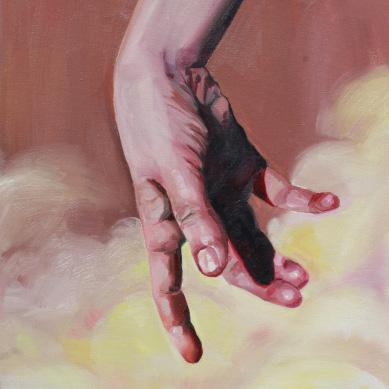
KARACHI, a (not)girl holds her mother’s hand a little too tight
Soft feet press into a bed of rose petals, red like the sari of a new bride, eyes cast down as she crosses the threshold into her new life. One day, I will call her chachi (aunt), but for now, she is just a freshly bloomed marigold. The bottoms of her feet are painted the color of carnations, stained under thick layers of mehndi that clung to her skin.
I’ll watch her from a distance, as I step through the meadow that is the foyer, let myself reside amongst the affluence of flowers that ask me to stay in their arms.
Mama presses her hardened hands against the dholki, the claps of thunder masked by the bang of the drum that will echo throughout the house. Mama tells me it’s not raining, but it is. She just can’t see it yet.
I’ll sit at her feet, press my face against the beads that are sewn into her lehenga. The beads will dig into my skin like an ice pick shattering the frozen river before the ice harvest.

If I press my cheek against it hard enough, I wonder if I will draw blood. Will I burst from the seams as the river does?Can I fragment open in the same way He does?
My younger self will come up to me, tiny hands grabbing for my dupatta as she pulls me down to press her lips against my ear. She asks me, “Who would do this for the daughter who marries a daughter?”
I snap my fingers, and she smiles at me like she knows something I do not. Like she knows something I do not yet know how to put into words. She dissipates into the air, dissolving into lush violet petals. I let them fall into my hands and crush them gently before I brush them underneath the couch. They will be vacuumed up by the cook’s daughter later tonight, long forgotten.
When the stars drift down to the earth for the night to kiss the children on their round cheeks, I’ll close my eyes and stick my tongue out like I’m trying to catch a snowflake. I hope that a spark will settle on my tongue and let me know that I come from a dynasty of sultanas, not queens.
Mama asks me what I’m doing, and I just shake my head and laugh. I cry into the koi fish pond and watch the fish lap up the saltiness from my tears. Koi fish are a freshwater species — they do not know that they are not meant to consume the saltiness of the sea. But how can they know, swallowing up the tears in the pond? How can they know their desire goes against their very biology? How can they know?
What a horrid thing it is, I murmur, to not know that which you love is not meant for you.
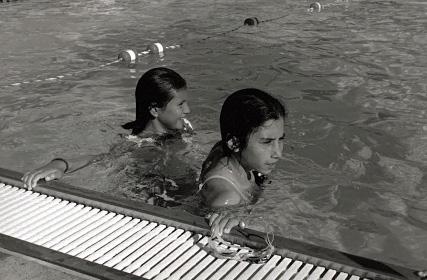

The dog was buried at the foot of the birdbath, only six inches deep because there had been a frost, and the ground was too hard to go any further. After the funeral, she suggested they call her brother with the news. It was basically his dog; he had picked it out at the kill shelter and walked it every day before he left. Her father hesitated at first, then scoffed, insisting they not upset the kid right when final exams were starting, they were paying a king’s ransom for this school, colleges look at first year prep school grades, yaddah yaddah. Her mother nodded and gripped the stone edge of the birdbath: He’s too fragile to find out while he’s away, so far from us. Only four hours, the sister thought, but she kept quiet. Her mother’s fingers were pressed, white and bloodless, over her lips, probably imagining how her son would break apart if he heard the news just now, like a ceramic doll hit on the nose with a hammer. One little tap and the whole thing would go to pieces, little shards scattered across the floor of a New England dormitory bedroom.
Two weeks later, her parents must be feeling guilty, because instead of driving as a family to Union Station, they send her alone to pick up her brother. They had been slinking around the house, sheepish, like the dog used to do after eating deli meat off the counter. To be honest, when the dog had died, she had felt sort of content. The event had, in a way, initiated her into adulthood. No one had ever died in their family before, and she often felt as if she was waiting for it to happen. At sixteen, she was too old to not have experienced death. It had happened to most of her friends: a grandparent here, an uncle there. So, this is it, she thought when she came down the stairs and saw her father bent over a limp mound of white curls on the living room floor. This is a huge part of life, and now I know what it feels like.
Maneuvering through D.C. traffic, she thinks about how she will broach the subject. Her brother has always been moody, often falling into days-long bouts of grumpy, unexplained silence, but she will not sugarcoat the news, and she will not cry if he cries. He is the smarter one, even if they had all been a bit surprised when he got into Ingrahm.
But she is the one who is good in situations like this. Emotional situations. Their father used to say, when one of them hurt or embarrassed themselves, It builds character. She wonders why he didn’t say it when the dog died.
Her brother has been thinking about bone. The sound it makes, the variety of sounds. The train is quiet, and no matter how badly he wants to sit in silence, his brain won’t let him. Phantom noises pop in and out of his ears– noises the person sitting next to him, a girl of maybe twelve, can’t hear. Bone, when it is forced into an unnatural position, bent almost to a breaking point, makes a noise even before it snaps. It is the sound of friction, of clothes on metal– of sliding down one of those tin playground slides that burn in the daylight. And then, when it breaks... oh, God, the sound. Not a clean little snap, but a messy, cacophonous break, like celery splitting: full of fibers, strands, holes. An orchestra. It hadn’t been at all what he expected. Not that he had expected anything. He hadn’t planned anything. Suddenly, he grows angry, stares out the window as his face reddens, digs his nails into his palms. The headmaster had called it a premeditated attack, but it sure hadn’t been premeditated on his part. Eds and Sully woke him up sometime around three in the morning on Wednes day, several hours after he had gone to bed in their shared triple. He was sleepy-eyed and delirious, still half-dreaming, but they clearly had not slept at all.
Hey, Eds said. Get up, you’re gonna come with us. Come where? he said.
To Victor’s dorm. Little Icky Vicky, Sully growled, his teeth flashing in the darkness as he knotted the laces on his left boot.
It seemed to be a senior tradition at Ingrahm to single out one of the younger kids and collectively pick on him. Victor, who went to the junior school, was the skinniest, pal est kid on campus, with ice-blue eyes and blonde hair that was thin and stringy like corn silk. Naturally, he was that year’s unlucky winner. Eds and Sully were only sophomores,
and it was obvious how badly they wanted in with the seniors, who left cigarette ash in the bathroom sinks and would be going off to college next year. But Eds and Sully had been kind; they had taken in the freshman from middle-of-nowhere Virginia as their friend, had let him hang out with them at pep rallies and come with them to the dining hall. And so he followed them outside and across Hecktor Square to the junior dorm at three in the morning. He didn’t know how they knew where Victor’s room was on the fourth floor, but the door wasn’t locked. He was groggy, and maybe that’s why he didn’t get that usual heaviness in his chest as they walked– the one that stifles his breathing when he grows anxious before a test, or when he’s running late to class. He and Eds held down the kid’s arms so that Sully could drag him by the ankles out of his bed and down the hall.
But he didn’t plan anything. He wasn’t part of it. Wasn’t wasn’t wasn’t. The letter says otherwise. The damned letter. It’s in his backpack now, but folded up in the very back pocket, so he can pretend it doesn’t exist. He could study his parents’ signatures when he gets home, he could forge them and send it back, easy. But the letter is only part of it, the letter is a formality. His parents will get a call tomorrow night, re gardless of what he decides to tell them beforehand. He considered unplugging the home phone, but his parents have cells, and surely Ingrahm will try those next.
There are two sets of marble staircases in the junior dorm: one in the east wing and one in the west. Out of the room, they moved towards the west wing, clumsily holding up Victor, who was waking up now, making little noises and yelps like What’s Going On and shaking his legs and arms. As Sully approached the end of the hall, Eds swung Victor’s head around to face the steps. The so-called “whole plan”, which Sully and Eds reported to the headmaster that night, was to disorient Victor– to leave him out in the cold in his pajamas and make him walk back inside on his own. But instead what happened was that halfway down the first flight of steps, Sully lost his grip on Victor’s ankles and he and Eds fell into each other under Victor’s weight and Victor fell head-first the rest of the way down.
He could talk to his sister. Maybe she’d help him break the news to their parents. Would she do that for him? Or would she be disgusted? He’s been debating this since Thursday morning, when he and Sully and Eds were finally let back to their room. Once, in elementary school, his sister pushed her friend Laya to the ground. Laya had sprained her wrist, but she and his sister are still best friends. Now the event is like family lore, and sometimes they laugh about it. Is that the same thing? She was a kid. But technically he still is, too.
Sully and Eds were clearly closer with each other than with him. The headmaster took note of that, he’s sure, when they were all gathered in the office that night. Obviously he was just dragged into it because he rooms with them.
A text from his sister: I’ll be there in twenty. Train still on time? This is slightly relieving. He can speak to her first, gauge her reaction. Finalize his plan.
The girl next to him yanks a stick of gum from her bag. He wonders who her parents are, to let such a young kid, probably in middle school, ride an interstate Amtrak alone. The gum, pink, slides into her mouth, leaves a little trace of white powder on her fingertips. In front of him, the seatback is covered in swirly geometric patterns like the ones in the bus he and his sister used to ride to school together, and he stares at it as the gum snaps and pops between the girl’s teeth. His phone buzzes again. He closes his eyes. Pop. Pop. Pop.
Lily Parker


me and my empty womb go on a walk with you it’s the winter and it’s central park my boots slash my feet at the heels and toes when i get home i will run a warm bath peel off the bloodied socks and my roommate will complain about the water bill which i always pay on time there are shivering ducks on the pond and you smell of clean laundry when our arms brush we never mention it again i joke i could name a child after you and you laugh snow falls on your olive green coat your near-perfect back which i picture when
it gets dark in my room and i get restless a nurse brings me water when i faint nauseated by red specks and unscrubbed floors of the waiting room she tells me i’m too young to sleep that little or to bear a child at home i lay down on the sheets i forgot to wash because the laundromat is so crowded
on the weekends and you are always there by the dryers with your books and your long hands making me picture how sweet it would be to have something named after you grow inside me to care for it watch it leave grow to resent me eventually forget i wasted years of my life on you how lucky would i be to have you twice.
Julia Tolda
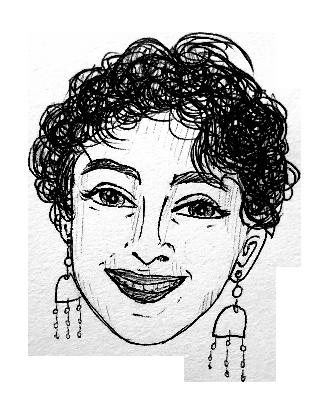

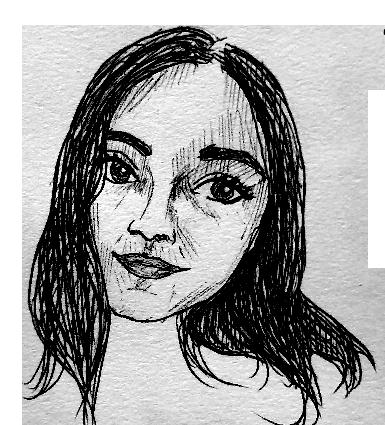
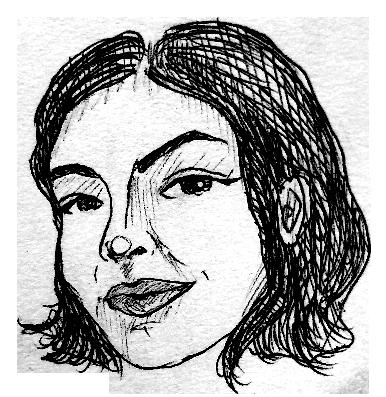

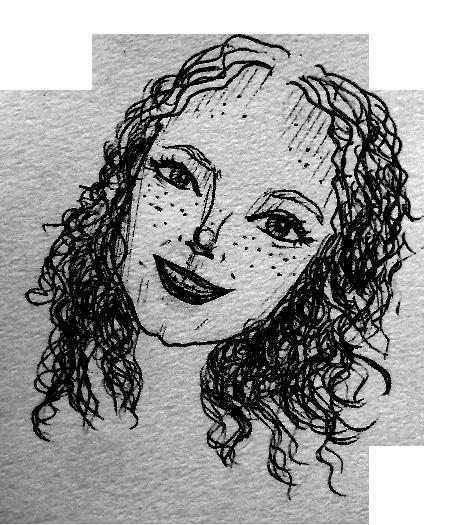
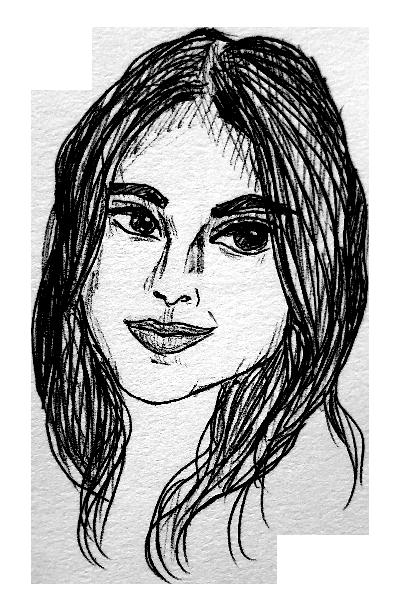
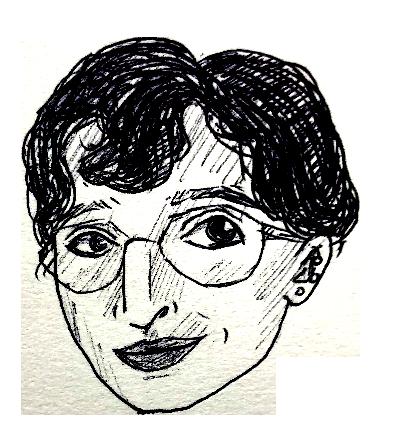

Hanna Dobroszycki
Maria Hellenbrand
Sarah Kopyto
Raunak Lally
Eleni Mazareas Silvana Navia
Caterina Newman Nia Paz
Bonny Quan
Regina Rosenfield
Dai Shi Anna Olivia Sommer Sophia Trzcinski

